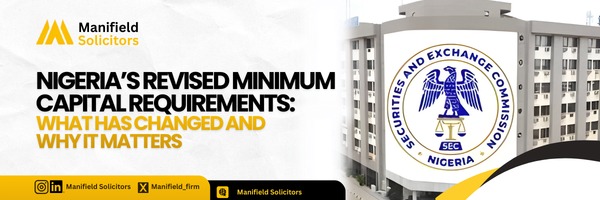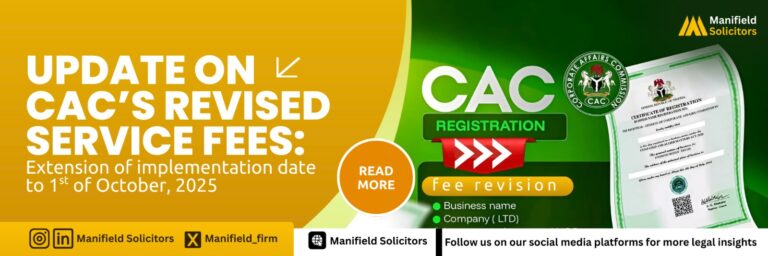The Nigerian Police Force through its X account reported the collapse of a building under construction on the 5th of March 2025raising serious concerns about construction quality and buyer protection. In the wake of such incidents, many have turned to social media for advice, with some suggesting that buyers should demand a signed liability document from realtors and developers. But is this the right legal approach? Let’s explore how to protect yourself when investing in property.
Who is Liable When a Building Fails?
Understanding liability is crucial in real estate transactions. The key players involved in property development have different levels of responsibility:
- Developers (or Builders): They are primarily responsible for the construction quality and must adhere to building codes and safety regulations. If a collapse occurs due to negligence, substandard materials, or lack of regulatory approvals, they can be held liable. Developers are also expected to conduct soil tests, use certified engineers, and obtain government approvals before commencing construction.
- Contractors and Engineers: These professionals oversee the actual construction, ensuring it adheres to approved plans, material specifications, and safety standards. If structural failures arise due to poor workmanship or deviations from approved designs, they may share liability with developers.
- Realtors (or Agents): Their role is primarily to market and facilitate property sales. Unless they knowingly misrepresent a property’s structural integrity, they may not bear direct liability. However, if they market an unapproved or structurally compromised property, they could be held accountable under consumer protection laws.
- Regulatory Authorities: Bodies like the Lagos State Building Control Agency (LASBCA) and the Federal Ministry of Works and Housing are responsible for enforcement and issuing necessary permits. Compliance with these regulations is essential to preventing construction failures. If they fail in their oversight duties, they may also face scrutiny.
- Property Owners: If a building owner undertakes unauthorized modifications, such as adding extra floors without approval, they may be held liable for resulting damages.
Laws and Government Role in Property Development
The Nigerian government has established a legal framework to regulate property development, ensuring safety, accountability, and compliance. These laws define the roles and responsibilities of all players involved:
- The Lagos State Urban and Regional Planning and Development Law (2010): Regulates physical planning, building approvals, and development control in Lagos. LASBCA enforces compliance and penalizes defaulters.
- The National Building Code (2006): Sets minimum construction and safety standards applicable to developers, architects, and engineers.
- The Federal Housing Authority Act: Regulates large-scale housing development and ensures compliance with building standards.
- The Land Use Act (1978): Governs land ownership and real estate transactions.
- The Consumer Protection Act: Protects buyers from fraudulent developers and misleading real estate transactions.
- The Lagos State Real Estate Regulatory Authority (LASRERA) Law: Regulates realtors, developers, and property managers to curb real estate fraud.
Government agencies such as LASBCA and LASRERA play a critical role in enforcing these laws. Developers who fail to comply with regulations face serious consequences, including fines, revocation of licenses, and imprisonment. As a buyer, insisting on properties that meet legal, and safety requirements is crucial for your protection.
Essential Clauses to Look for in Property Agreements
Rather than a separate liability document, buyers should ensure that sale or lease agreements contain protective clauses, including:
- Structural Warranty: A commitment from the developer that covers major construction defects for a specified period of (5) to (10) years. This ensures that if structural issues arise due to construction defects, the developer is responsible for rectifying them.
- Defect Liability Clause: Holding the developer accountable for repairs or damages resulting from poor construction. This clause ensures that any construction-related faults discovered within a specific period post-purchase will be addressed by the developer.
- Indemnity Provisions: Ensuring that buyers are compensated in the event of structural issues caused by developer negligence or non-compliance with regulatory standards. This protects buyers from unforeseen repair costs and legal battles.
- Insurance Coverage: Confirm that the property has adequate insurance against structural failures, including policies that cover damages caused by poor workmanship, faulty materials, or engineering errors.
- Compliance with Building Regulations: The agreement should state that the developer has complied with all relevant building laws, obtained necessary approvals, and followed industry standards. This helps mitigate risks associated with illegal or substandard construction.
- Remedies for Breach: Clearly outlining legal consequences if the developer fails to meet agreed standards, including potential refunds, compensation, or legal action.
How to Protect Yourself Before Signing
- Conduct Due Diligence: Research the developer’s track record, past projects, and compliance with regulatory approvals. Investigate whether they have been involved in past building failures or regulatory violations.
- Verify Building Approvals: Ensure the property has all necessary certifications and planning permits from relevant government authorities. Do not rely solely on verbal assurances—request copies of permits and approvals.
- Inspect the Building: Engage independent professionals such as structural engineers, architects, or surveyors to assess the structural integrity before purchase. They can identify potential risks that may not be immediately visible.
- Seek Legal Advice: Have a qualified real estate lawyer review the contract to ensure your interests are fully protected. A lawyer can identify unfair terms, hidden liabilities, and missing protections in the agreement.
- Confirm Insurance Coverage: Ensure that the property has insurance that covers structural failures and construction defects. Ask for proof of insurance policies and verify their validity.
- Negotiate Protective Clauses: If the contract lacks key clauses (such as a defect liability period or indemnity provisions), negotiate their inclusion before signing. Never sign an agreement that does not protect your investment.
Final Thoughts
Investing in real estate is a significant financial commitment, and ensuring proper legal protections is essential. A well-structured property agreement is your strongest safeguard against potential building failures, legal disputes, and financial loss.
Instead of relying on informal liability documents, buyers should focus on conducting thorough due diligence, verifying approvals, and securing legally binding agreements with essential protections. Engaging experienced legal professionals can provide the clarity and security needed to make informed decisions.







Add your first comment to this post